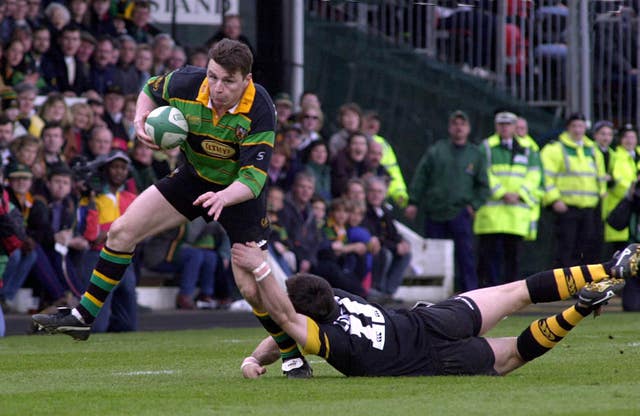The rugby authorities should do more to prevent injuries, the authors of a new study into retired players has found.
The researchers, led by Durham University's sport and exercise scientists, say both union and league codes should be stepped up to prevent recurrent injuries, and do more to help players after their careers end.
Concussion was the most common injury among rugby players, with most suffering at least one incident during their career, the study found.
The survey also found both elite and amateur ex-players reporting back pain and severe and regular joint pain, which they blamed on the long-term impact of cumulative injury.
About half of all players had sustained a knee ligament injury, with one in four still experiencing problems.
Osteoarthritis, in which joints become painful and stiff, was twice as common among elite rugby players compared with athletes playing non-contact sports, and was associated with previous injuries and surgery.
The findings, published in the journal Sports Medicine, come after the Rugby World Cup in Japan saw a number of issues, with high tackles and dangerous play leading to injuries.
Project leader Dr Karen Hind, from Durham University's Department of Sport and Exercise Sciences, said: "It is clear from these findings that playing rugby union or rugby league is associated with lasting impacts in terms of injury and pain.
"Although there have been initiatives and rule changes to try and make the game safer, the rates of injury across a player's entire career are still very high.
"The game is now also faster and players are bigger than they used to be so the impacts are greater.
"Many of the ex-players who took part in this study competed in rugby football over a decade ago when the sport was more about evasion.
"The injury levels for these individuals are up to nine-fold higher than for former non-contact athletes of a similar age.
"What we need to consider is that the game today is more about players running through opponents rather than evading – this is inevitably going to increase injury risk."
The study was done in collaboration with academics from Auckland University of Technology in New Zealand.

It compared the types and number of injuries suffered by 254 male elite rugby players, amateur rugby players and non-contact athletes, such as cricketers.
The retired athletes ranged in age from 21 to 82 years.
Dr Hind added: "Our study looked at the total number of injuries across a player's career and our findings suggest a need for better injury recovery given the reported frequency of recurrent injuries.
"A case could be argued for less players on the pitch and providing more opportunity for evasion.
"Medics also have a role to play in encouraging sensible injury recovery times which clubs need to support.
"Importantly, our findings highlight a need for programmes to support professional players post-retirement, in managing the long term impacts of injuries sustained during their career."
Former England international Jon Sleightholme, part of the 1996 Five Nations winning team, said sometimes symptoms did not appear for years after retirement.
He said: "What the study highlights for me is the need for long-term support and education for ex-players to help them manage these conditions as they get older."







